Top STO tokens and STO Launching Platforms 2019
Security tokens are tokens issued on the blockchain that assure investors of profits or returns in the form of dividends, interest, shares in the company or other kinds of rewards. Security tokens could include tokenized digital asset versions of traditional securities such as stocks, bonds, equity funds, venture funds, real estate, or other traditional equities. But that's not the only application. These tokens are based on regularized contracts and regulated under relevant laws.
Security tokens are being utilized to make available, on the blockchain, financial instruments such as stocks, bonds, venture capital, private equity, pensions, and real estates. They are offered through what is known as STOs or security token offerings which are comparable to ICOs.
The term security tokens come from the traditional term security, which is used to refer to tradeable financial assets such as stocks, bonds, and other forms of assets that have financial value, and these tokens come with a variety of financial rights including right to payment of dividends, right to company equity, profit sharing rights, buy-back rights and voting rights on the blockchain platforms to determine project direction, for instance, the proposals it could invest in.
Security tokens are issued on blockchain and based on smart contracts, for instance, when tokenizing stocks and bonds or other financial assets; but like traditional securities, they represent a legal right to ownership of a share or holdings in another fund. They also fall under regulated securities and have of late become most desirable especially with issues surrounding regulation of cryptocurrencies and tokens. A security token not only offers some provable backing and safety that comes with traditional finance but also meet some regulatory requirements in the contract terms.
They can be compared to utility tokens or payment tokens used in many crypto platforms today. By definition, utility tokens are issued with the sole intent to provide the holder with access to the platform and the services therein. Their value is derived from platform services and holders do not have right, so to speak, of ownership of shares in or part of the company even though their value can increase over time.
Many of the companies issuing utility tokens are legitimate and above-board and utility tokens are by far the most invested type of token so far.
The intention of this article is to attempt to list all or at least currently functional security tokens and platforms that facilitate the issuance of these kinds of digital assets and cryptocurrencies:
Bcap (Blockchain Capital)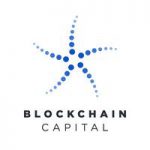
Bcap is a security token issued by Blockchain Capital, which is a venture capital firm focused on investing in startups, companies, and tech in blockchain and crypto sectors since its formation in 2013. Through the Bcap token, holders become part of the digital venture fund and share in the profits.
And with this platform, there are no fees to get access to fund, no minimums or barriers to entry although there are 2.5% management fee and 25% performance fee paid to funds managing partners. The remaining profits after the fees are paid are distributed to token holders.
Blockchain Capital held an STO in 2017 and the project had reached a hard cap of ten million dollars in six hours, all sourced from accredited and verified investors.
Lottery.com
Lottery.com's STO gave token holders right to share in revenue derived by its gaming platform, which is dedicated to raising funds to help solve some of the most pressing humanitarian needs across the globe through raffles, sweepstakes, and other games of chance.
The Austin, Texas-based company has a mobile lottery platform alongside the GG World TV Show which are dedicated to raising the funds. Basically, the blockchain provides a ticket-purchase courier service for most popular lotteries in the world. Holders of the token share in dividends based on every GG world lottery jackpot prize win, which is based on the total sales of GGCOIN.
The company has offices in California, New York, Nevada, Arizona, Oregon, Ohio, Minnesota, North Dakota, New Hampshire, Ireland, Singapore, Cambodia, and South Africa, with more than 70 employees and consultants worldwide.
SpiceVC
SpiceVC is a venture fund that specializes in investing in tokens and blockchain tech. According to their website, they invest in startups that are tokenizing assets or services on the blockchain.
Holders of SpiceVC's security token are entitled to a direct share of net profits. Spice was started in 2017 and is now a fully tokenized venture capital fund. It invests in startups that are in the pre-series A or pre-ICO stages which are the stages during which such startups could achieve the fastest growth in valuation hence meaning the investors can benefit more. The security token is not only issued in a regulated platform but is also tradeable on a regulated platform OpenFinance Network where digital alternative assets are traded.
Like other platforms in this list, it offers investors especially private investors with more opportunities to invest in VC funds, which they could otherwise not do because of the 7-10 years lockup. This is in addition to making the funds much more liquid, inclusive and manageable.
Siafunds
Sia, which is a blockchain-based peer-to-peer cloud storage platform that allows users to lease out their storage capacity to renters who spend Siacoins platform token, also has a security token called Siafunds. Users are able to invest in both utility tokens and the security tokens in the platform.
With the platform, users with underutilized hard drive capacity can offer it to renters via blockchain networking and the transactions are secured with smart contracts.
In particular, Boston-based Nebulous In, the company behind the platform, is offering 750 out of the 10000 Siafunds available on the platform, to qualified investors in an auction opening on April 16. Nebulous was established in 2014 and launched the Sia Storage Platform in 2015.
22X Fund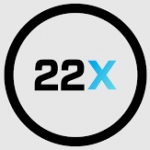
22X Fund is formed by entrepreneurs from a group called 500 Startups. 500 Startups is a global venture capital seed fund with a well-known accelerator program headquartered in Silicon Valley. The fund invests in startups graduated from the San Francisco 2017 500 startups batch where it will hold between 2.5% to 10% equity in the companies’ it invests in.
Token holders can own up to 10% equity in the batch of 500 startup companies. They can also trade the security token on an exchange and in addition, get returns in a token repurchase program during a company's IPO or an exit.
Property Coin
Property Coin is a token 100% asset-backed by real estate property. Aperture, the company behind the investment, aims to invest in loaning property investors and in the flipping of residential properties.
Shareholders or security token holders will get half of the profits through re-investments.
The token got listed on Security Token Network last month. The project is led by Andrew Jewett and Matt Miles as Co-CEOs and Pat Fogarty at STO.
Slice
Slice, a commercial real estate platform, exposes investors -- including international investors -- to US real estate sector through a securitized token. The platform acts as an underwriter, issuer, and placement agent for the listed properties and offers tokenization or fractional ownership in US commercial real estate via token ownership by investors.
Vetted and verified investors can invest a minimum of $10,000 through buying the security token, and the funds from these investors are spent on purchasing commercial real estates. The tokens appreciate in value with the appreciation in the value of the real estate and can be traded on the platform or on any security token exchange that lists the token.
The security token holders get legal rights in participating units of the asset and they get both official certificate and tokens representing the investment which you could trade later. They get to earn dividend from profits generated from rental incomes. The company has attracted over 120 project submissions and has already listed some properties.
The platform also makes cross-border transactions or payments cheaper, faster and easier.
Platforms for the issuance of security tokens.
Security tokens are issued through security token platforms, which tend to integrate the same principles of regularizing tokens and issuance processes such as KYC, anti-money laundering, investor management, and securities legal compliance. Different platforms have different features to ease launching and management of security tokens by those issuing them or the issuers, as well as to help investors securely invest in and through these platforms.
Among those features are those facilitating transferability of tokenized assets across different blockchains and smart contracts.
Securrency
Securrency was founded in 2015 and is headquartered in the United States, with a second office in Abu Dhabi. It is the longest standing security token infrastructure and has key partnerships with SharesPost, AX Trading, Entoro, Vertalo, OpenFinance, and SeriesOne.
It created the CAT-20 and CAT-721 token standards although these patent-pending protocols are based on a centralized rules engine. The platform serves as a one-stop security token issuance service that includes KYC, fully interoperability of tokens for cryptocurrency exchanges and post-issuance token support.
In addition to being the only security token issuance platform that is compatible with Ethereum, Securrency platform also allows embedding of customer management applications which can be used by customers issuing tokens to manage their investors or those buying their tokens without the use of external applications.
Interoperability support means the security tokens launched on this platform can be transferred across all large blockchain networks such as Stellar, EOS, and Ethereum. The platform also supports secondary trading of security tokens across different cryptocurrency exchanges and platforms around the world.
The platform's pricing model is based on SaaS-model pricing for enrollment and initial tokenization. There are also annual maintenance fees charged on those issuing tokens. Customized project-based solutions as well as applications embedded on the platform also attract additional charges.
Securitize
Securitize was founded in 2017 and is based out of Tel Aviv. It is fund-backed by investments from Blockchain Capital, Coinbase Ventures, Xpring Ripple), NXTP and Global Brain Corporation. Its main partners include Tzero, Blocktrade, OpenFinance, Airswap, SharesPost, Hyprion and Bnk to the Future.
Their platform offers starightforward on-boarding through a contact form and it covers equity, real estate and funds, with plans to add debt.
Securitize created the DS Protocol which creates the DS tokens that can operate on ERC-20 token standard meaning they are primarily for use within the Ethereum network. There is no mention of cross-blockchain support to Stellar, EOS or other blockchains. Security tokens issued on this platform can be traded on various cryptocurrency exchanges or hosted on other platforms and clientele systems.
The platform protocol also supports registry that holds investor information such as KYC details, a compliance layer to integrate security laws and regulations of selected countries, and a communication service that notifies investors of industry information relating to issued security tokens.
The platform has issued over 4 billion security tokens and has recorded highest early adoption for security tokens so far.
Some of the security tokens issued through this platform include from Blockchain Capital, SpiceVC, Augmate, 22x Fund and Science Blockchain. Fees include upfront fees and monthly recurring fee with the initial contract being 2-year deal.
Tokensoft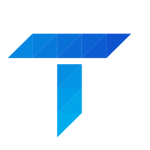
The TokenSoft platform has 20 years of combined experience in blockchain technology, was founded by engineers and probably has more functionality built into its processes than other platforms.
It is backed by investors such as eVentures, Base10, Coinbase Ventures and Fidelity Ventures and it recently acquired Knox Wallet and now have access to Coinbase Custody. Key partnerships include OpenFinance Network, Stellar, Hyperledger, R3 Corda, and Tierion.
In addition to supporting bespoke customizable issuance to meet specific needs of issuer and counsel, they also support future issuance and partnerships. Users are also able to leverage new means of business growth through digital asset issuance.
TokenSoft offers more than 50+ jurisdictions for KYC/AML and investor accreditation, in addition to issuer branded on-boarding and support for global investor participation (meaning issuers can sell their security tokens to any investor from any place in the world). The platform also offers support for token distributions, payment of dividends and trading of the launched security tokens via open-architecture token issuance and design functionality.
It does not include ICOs and is selective in accepting clients/issuers of tokens, including legal counsel being chosen by them. Other services offered on the platform include digital asset custody solutions and partnerships.
The company developed the ERC-1404 standard which allows token issuers to whitelist investors in their security tokens, control investor limits or the number of investors who can subscribe to their security tokens, source capital globally or in other words sell their tokens to anyone anywhere in the world, and it can be used to implement with other standards such as Polymath's ST-20 OR Harbor's R-Token.
TokenSoft can process 28,000 individual applications in a single deal and more than 20 clients simultaneously.
The platform has been used to issue digital assets for clients such as Andra Capital, Hedera Hashgraph and the Tezos Foundation and its clients have raised more than $400 million through the platform.
It employs the SaaS-model pricing model for token issuance, charges monthly fee for post-sale management, and charges additional fees for custody solutions.
Polymath
Polymath is a Toronto-based security token issuance platform founded in 2017. The company, which has a strong brand presence, comprises of a team of accomplished blockchain developers and high profile advisors. Some of its main industry partners include SelfKey, IdentityMind, Open Finance Network, Pegasus Fintech, Vertalo, Blocktrade, Prime Trust, Monarch Wallet, Netcoins, GenesisBlock, Tokenizo, Aird & Berlis, Cassels Brock, Homeier Law PC, Messner Reeves LLP, Security Token Lawyers, Glyph, Wachsman PR, and BitGo.
In addition to providing a large partner network and several options for custom token generation, Polymath offers a marketplace, token studio, ST-20 protocol, and Ethereum network. Issuers can search for and use and benefit from modules and STO smart contracts for off-shelf use, which have been developed by developers on the platform. Through the Polymath Token Studio, those issuing tokens are able to customize and launch their own STOs all with ability to select from different KYC/AML providers and partners and to reserve a ticker symbol.
With the core smart contracts platform, those issuing tokens are able to build tokens with built-in transfer restrictions on a decentralized blockchain. It means the tokens can be modified to adhere to desired legal requirements. The fees is transparent (250 POLY for ticker registration plus 250 POLY dor token creation and 20,000–100,000 POLY for audited STO Smart Contract) but the payments on the platform are made using an ERC-20 utility token POLY. Besides, the platform does not have support for cross-blockchain transactions and functions primarily on Ethereum network.
Some of the companies that have issued security tokens through this platform include Corl, 7PASS, MintHealth, IPwe, and BlockEstate.
Harbor
Harbor was founded in 2017 and is based out of San Francisco, U.S. The company has a team that has strong experience, with leaders such as former PayPal COO David Sacks who also created Yammer, Craft Ventures and Zenefits. It is funded via venture capital from the likes of Founders Fund, Pantera Capital and more. It has a primary focus on supporting issuance of real-estate market based security tokens.
The platform streamlines investor on-boarding by providing KYC/AML, accreditation, tax forms, document signing, funding, wallet provisioning and custody through integration with BitGo. Its compliance protocol also enforces other rules regarding issuance and regulations. Issuers can use the protocol to customize their token investor eligibility, total investor base, holding periods, and in many other ways. Harbor platform is built around Ethereum but partially centralized. Their pricing structure depends on project size.
It features a an ERC-20 token called R-Token with additional capabilities to ensure that any supported ERC-20 wallet or exchange is compartible with all necessary requirements in secondary security token trading. Oracle feature is used as a compliance arbitrator through both exchange and peer-to-peer token transfers.
Swarm
Swarm uses the SRC20 protocol to facilitate the issuance of security tokens representing tokenized real-world assets such as real estates, renewable energy, agriculture, tech companies, crypto hedge funds, etc. Like all other security token issuance platforms, it helps make the tokenized assets east to manage, move, govern and trade. It also Holders of these tokens can manage assets via voting. They also have rights to any revenue streams from the asset and also can trade the asset via the tokens in a regulatory compliant manner.
Other features supported include STO fund raising and post-issuance activities such as token redemption, dividend issuance, investor administration, reporting and communications.
Its protocol establishes a specific set of rules which tokens have to adhere in order to represent a real-world asset. Developers can also use the protocol to build applications that can use these security tokens.
The platform also features its own token called SWM. It uses Market Access Protocol (MAP), a cross-blockchain interoperability security token protocol that supports interoperability between issuers, investors, exchanges, and qualification providers while at the same time preserving privacy. It also supports or works with other tokens including those issued outside of Swarm platform.
Swarm and MAP are powered by masternodes with those owning and running masternodes earning rewards.
Abacus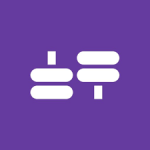
Abacus is a new protocol is security token issuance and has the S-Token Protocol that comprise of Protocols, Token Instruments, Providers, End Users, and Marketplaces. It is compatible with existing token standards such as ERC-20, ERC-721, R-Token, ST-20 and more. Projects can do identity verification through the Abacus Identity service. The latter offers workflows for photo IDs, AML checks, investor accreditation, FATCA forms and social media to facilitate investor verification and accreditation.
Abacus serves the primary role of enabling creation of autonomous services for tokenized financial instruments. The platform is free to use but fees apply for services attracting fees oputside the core blockchain.
Some of its main partnerships include with 0x, Dharma, Set and WalletConnect.
TokenMarket
The UK's financial regulator, FCA, has a FCA regulatory Sandbox that aims to test innovative businesses and fintech products and services in the real market. The sandbox is open to authorized firms, unauthorized firms that require authorization, and tech businesses. It also offers restricted authorization, individual guidance, informal steers, waivers and no enforcement action letters.
TokenMarket's issuance platform is being tested under this sandbox. The platform allows companies to raise money or capital via equity crowdfunding or private placement with tokenising shares, equity, commodities, bonds and physical assets. So far, clients have raised £240m via the platform through over 30 token sales and it hosts an investor community of around 170 k people.
The platform offers features such as 24/7 transacting, easy trading admission, easier accessibility and compliance, compatibility with global systems, frictionless cross-border trade, and scalable investor management. It also supports trading of tokenized assets on secondary markets. It allows creation of tokens within a variety of aspects such as documentation, screening potential portfolio addition, KYC/AML procedures and trading on a fully decentralized ledger.
TokenMarket is also hosting an upcoming STO for their platform.
Tokenomica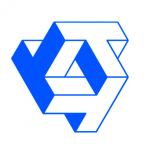
Tokenomica is also a new security token issuance platform from the Waves team and thus based on Waves blockchain. It is currently in beta. In launching tokens, users are taken through an online questionnaire that helps decide which type of security token and jurisdiction for the issuance. Issuers can also get support from service providers connected to the platform.
In addition to the technical functionality to create security tokens, the platform lets users do so within a framework that guarantees compliance with all applicable regulation. The platform also provides direct access to the secondary market.
TokenGet
TokenGet is a platform that integrates or aims to integrate global regulatory compliance to its platform. The smart contracts are programmable to issuer and investor desires such as to provide for dividend payments, buy-backs and vesting. Token creation is done via smart contract that issuers can write from the platform. The platform also supports tokens launched on other platforms such as Ethereum, NEO, EOS and Stellar.
The platform allows for tokenizing and fractioning of real-world assets such as real estate, company equity, investment funds, and collectibles. It features KYC/AML integrated to enable projects do checks on their customers (including Thomson Reuters, Identity Mind, IDNow and Shufti Pro). It features social network feature to allow automatic detection of all users' activity in social networks and to calculate a number of dedicated tokens.
Issuers can also set up referral bonus, do automated airdrops, process all incoming transactions and distribute tokens easily from the platform, monitor ROI of their marketing campaigns, manage their STOs stage by stage -- Private sale, Pre-Sale, Main Sale.
The project now has facilitated launching of more than 50+ Projects including the likes of Further.Network.
Mobu
Mobu is new in the STO space as well, and in addition to allowing for the launching of security tokens, it has integrated with the Ethereum network to support the ERC20 token standard. It also features a licensed operational stock exchange and the Mobu Cash e-money payment solution world-wide. Other features include a retail brokerage and banking solution to investors. Real businesses such as property development companies, gold mines, retail companies and many more are able to launch security tokens on this platform.
Mobu is currently holding its own STO that allowed investors to buy MOBU tokens and get the tokens as investment returns generated from various platform fees charged on the platform, for instance fees charged when other issuers list tokens on the platform.
Tokeny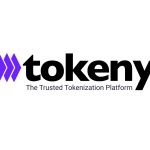
Europe-based Tokeny is a platform that allows issuance, management and transfer of security tokens. It allows investors to issue tokens representing any kind of tokenized property such as assets owned by individuals, companies and governments; equity in business; investment funds; and services and goods of businesses.
The platform offers cloud-based compliant issuance services, T-REX (Tokens for Regulated Exchanges) for compliant transfer of ownership, and servicing solutions that allow issuers and their investors to manage tokenized securities such as by paying and receiving divindeds and performing audits and reports.
T-REX offers interoperability with cryptocurrency wallets, cryptocurrency exchanges, and identity providers, lets customers issue token to global investors, a decentralized trade validator system, and a smart contracts-based rights transfer for real transfer of ownership of assets.
It offers a white-labelled portal for easier on-boarding of investors, integrated KYC/AML checks and investor identities, and multi-currency and multi-payment methods.
If you are new to the world of tokenized assets or tokenization or security tokens within the meaning of tokenization, you can download their e-book about the same topics.
ICOFunding
The ICOFunding platform features a number of functionalities. These include KYC/AML and token acquisition interface, smart contract based security token development with the smart contracts audited by third parties to assure security, and a legal structure comprising of network of law firms and broker agencies in the most relevant jurisdictions. For instance, ICOFunding has partnerships with different broker dealers that can help issuers where a jurisdiction requires an authorized broker dealer to facilitate launching of STO.
That's not all, investors willing to invest in crypto through any STO launched on the platform are protected from scams and bad execution through an on-chain governance mechanism called Coin Governance System (CGS). Issuers can also benefit from an in-house marketing plan or work with ICOFunding partners for the same purpose.
In regard to smart contracts, issuers can customize their token and issuance as they wish, for instance to allow for profit sharing and dividend payments, etc.
Security Token Exchanges
While some of the above security token issuance platforms act as exchanges and trading for the issued and listed security tokens, there are many exchanges that facilitate trading of security tokens without necessary supporting issuance. So we have an additionto the list for purposes of exchanges that do not support issuance.
Bancor
Bancor operates like a cryptocurrency exchange but uses a different mechanics to facilitate the exchange. It does not require a counterparty meaning the orders do not have to be matched with counterparties' to facilitate trade but each order s executed directly against a smart contract. That means there is continuous liquidity with tokens always available regardless of the trade volume and there is no order book, no spread.
It's Smart Token protocol enables users to autonomously and continuously convert one token to any other token in the network at algorithmically calculated rates.
For those interested in security tokens, the platform allows issuance of security tokens, as well as their management and peer-to-peerexchanging on the platform. The network announced support for security tokens last year July, with Alchemy Coin becoming the first security token to join
the Bancor Network.
That means holders would get access to continuous liquidity regardless of trade volume or exchange listing. The security token can be exchanged for 100+ tokens on the Bancor Network including ETH through a simple user-friendly interface on the Alchemy's site.
Those listing their security tokens do not pay any fees for its member tokens. They only need to integrate Bancor and stake BNT to enable automatic trading via the liquidity pool owned and managed by them.
tZERO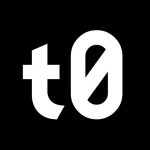
tZERO, which is a subsidiary of Overstock.com, recently issued a security token offering and raised $134 million from over 1,000 global investors. The token, which was conducted in full compliance with the U.S. securities laws, is now among the security tokens available for exchange by verified investors on the platform.
The platform also allows issuers to issue STOs, whether they are private or other kind of organization/company. Together with traders, issuers leverage
tZERO's strategic partners and affiliates including registered broker-dealer partners or affiliates. This, for instance, allows issuers to easily navigate
the offering process. The platform allows for interoperability and transferability of tokens and with other platforms.
Open Finance Network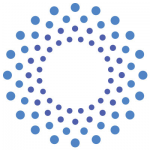
The Open Finance Network is a U.S.-based exchange, which moved from beta to full trading last December. It offers an Alternative Trading System
that also allows for trading of security token exchange beginning Q4-2018. It allows users to list tokens that adhere to the DS Protocol, R-Token, ST-20,
and S3. BCP security token was the first security token to trade on the platform
The platform also has partnership with other platforms that facilitate issuance of security tokens such as TokenSoft, Securitize and Swarm as well as cryptocurrency exchanges. It offers asset interoperability, data standardization and common protocol for those issuing or trading security tokens. The technology offers direct integration with financial institutions such as broker-dealers, custodians and transfer agents.
The company was launched in 2014 and has been working with leading brokerage houses, custodians, transfer agents and banks.
Blocktrade.com
Blocktrade.com is based out of Liechtenstein and went live on October 2018, and provides a platform on which users can trade Security Tokens, Crypto Assets; Crypto Traded Indices™ and other tokenized assets. They provide trading platform for individual and retail users as well as institutional traders, brokers, money managers, professional traders, and it has a market partner network that helps to unlock liquidity.
To list a token, the project undergoes assessment review and analysis. Membership fees and subscriptions are paid in BTT tokens. According to their website, the trading platform can process over 1 million trade requests per second.
Some of the features include one-click trading, and a desktop top, as well as a iOS and Android mobile app from which users can trade security tokens and crypto, The exchange has partnerships with Binance, BitBay, Polymath, and MSX of Malta Stock Exchange as well as Neufund to increase liquidity to tokenized real world assets. Neufund, which is a platform to tokenize real world assets through their security token, successfully held an STO last year and plans to list the security token on Blocktrade.com among other exchanges. A partnership with Desico, a platform for issuing tokenized securities, would also see the security tokens issued via Desico listed on Blocktrade.com.
Latoken
Latoken offers a platform for trading both cryptocurrencies and tokenized assets. Already, the platform is offering trading of cryptocurrencies and alternative tokens against ETH and plans to list tokenized venture funds and equity.
One of the security tokens listed on the platform is REMCO. Remco security tokens can be used to tokenize fiat in facilitating money transfer. Its partners include Western Union, VISA, MasterCard, TransferTo among others.
Other examples of tokens being traded is the Tiberius Coin-formed under the Swiss securities law, and which is backed by real-world assets such as Copper, Tin, Nickel, etc.
Fluidity
AirSwap cryptocurrency exchange from Fluidity is known for cryptocurrency and token trading through the Swap Protocol, but is also facilitating trading of tokenized assets and security tokens.
Through Factora.io, Fluidity lets investors invest in tokenized assets or tokenize an existing assets through real estate blockchain platform called Propellr. They recently introduced FACTOR-805, an investment opportunity that lets customers to invest in Brooklyn property in Dai stablecoin and have returns paid in Dai.
The platform utilizes AirSwap Protocol to let buyers, sellers and other people to connect and trade on a peer-to-peer or wallet-to-wallet basis using smart contracts.
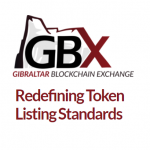 GIBRALTAR BLOCKCHAIN EXCHANGE (GBX)
GIBRALTAR BLOCKCHAIN EXCHANGE (GBX)
GBX is part of the Gibraltar Stock Exchange, a platform that facilitates trading of digital assets and tokens, security tokens. Issuers are able to issue and list security tokens and offer them for sale to investors. The trading of security tokens is approved by through the Gibraltar Financial Services Commission.
The exchange, which already has good traction in the form of customers on both its traditional equities exchange as well as its crypto exchange, already facilitates trade for cryptocurrencies. GSX's blockchain subsidiary GBX reports daily trading volumes of more than $USD 1 million. It hopes to leverage its existing resources to create early liquidity for security token offerings.
It uses Securities Trading Asset Classification Settlement (STACS) Protocol, which according to their website, stacks on top of financial institution platforms to enable tokenization of financial industry. GBX utilizes a permissioned blockchain to maintain partnerships with enterprises.
CANADIAN SECURITIES EXCHANGE (CSE)
CSE, which is operated by CNSX Markets Inc, started exchange services in 2004 and is facilitating trading of security tokens. Examples of security tokens listed on the platform include the SilverUSA and GOLDUSA security tokens.
Malta Stock Exchange
Malta Stock Exchange became a stock exchange in 1990 and more recently, entered a Memorandum of Understanding with Binance crypto exchange to develop a security token trading platform. Earlier this month, Malta Digital Exchange moved to the premises of the Malta Stock Exchange in preparation to launch a regulated exchange for trading security tokens and cryptoassets. It will offer trading of security tokens, crypto and other virtual financial assets under the definitions of the Maltese Virtual Financial Assets Act (VFA). It has also applied a license that will enable it to run a secondary market for digital securities trading.
Templum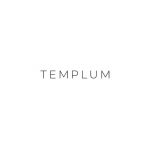
Templum is a U.S.-registered broker-dealer and SEC approved Alternative Trading System (ATS). The platform lets companies and institutions to raise capital using security tokens but also provides a platform for secondary trading of the private market assets including security tokens. Example of a token listed on the platform includes Aspen Digital security token (Aspen Coins) for hotel and real estate. This is after completing $18 Million Security Token Sale on the platform.
It means companies can issue security tokens or utility tokens to investors and list them for users to trade. Issuers benefit from the company's market
pool of individual, institutional and accredited investors. Through security tokens, issuers of security tokens can tokenize real world assets including
real estate, private businesses, private funds, fixed income and alternative investments.
VRBEX
VRBEX is a U.S.-based digital asset financial group created by Financial Service Professionals. They aim to facilitate trading of cryptocurrencies and support individuals in their journey to invest in security tokens among other crypto-assets. It is run by a highly experienced management team with seven founders having 209 years cumulative experience in the digital asset industry.
Their services include custody for select cryptoassets and wallets, debit/credit cards to allow individuals access to liquidity, reporting and record keeping of transactions and balances, secured lending of fiat against crypto balances, banking services such as USD Checking and Certificates of Deposit, cryptocurrency conversion, and advanced trading features and orders.
The Fully Fledged USA Cryptocurrency and Security Token Financial Marketplace is set to go live in the Q4 this year.
Stokr.io
Stokr.io is a platform for investors and ventures interested in tokenization of assets and digital assets/cryptocurrencies. Ventures/SMEs and other
businesses are able to raise funds/capital for their businesses through tokenized crowd investing.
Issuers can pitch to investors, issue EU-compliant security tokens in order to raise capital from investors who are looking to invest in tokens for a return in investment and other benefits. In other words, issuers can carry out STOs on the platform. Their platform is based on Ethereum.
You can follow their posts on Medium to know more.
New York Security Token Exchange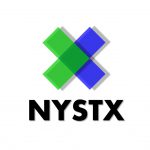
The New York Security Token Exchange allows companies to issue new tokens and is a market that allows trading of security tokens in full compliance with SEC and FINRA regulations. The target is to include/integrate all financial products such as stocks, derivatives, bonds, real estate and other business securities into a unified blockchain ecosystem but the platform will also include other services such as cryptocurrency payments integration, and a digital arbitration system.
The exchange is global and can be used by anyone around the world to issue a security token or buy one. According to their website, the platform is capable of handling millions of transactions simultaneously. The app will open for beta testing to public during Q2 of 2019.


